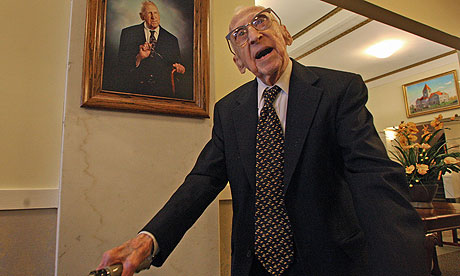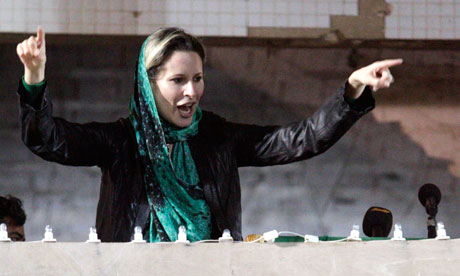 I treated this topic sometime in 2009, after which I received endless comments and questions on sex and the woman’s body. The sad thing is that a good number of these comments are from the male folk; they are either talking about their girlfriend or their wives.
I treated this topic sometime in 2009, after which I received endless comments and questions on sex and the woman’s body. The sad thing is that a good number of these comments are from the male folk; they are either talking about their girlfriend or their wives.
I believe that men don’t always like to discuss such issues and for a man to be the one worried about these problems, it is either of two things: the woman has refused to do something about it or the man is too timid to say it out.
I remember getting a message from a woman who was in pain and on the verge of losing her relationship due to this very problem. I gave my own solutions to it, but sadly I didn’t get any feedback from her.
From the numerous conferences I have held and from my counselling meetings with women, I have concluded that the major problems our women are faced with are Vaginal Odour and Slacked Vaginal Muscles. I will start with the problem of vaginal muscles.
It is a natural thing for a woman to lose her vaginal muscles at a certain stage of her life. But there are cases where we have young and vibrant women having weak vaginal muscles. This is a very serious issue that calls for concern.
I am not a medical doctor, but from my meetings with people and secret interviews with girls who are faced with this problem, this is caused by some reasons:
Lack of vaginal exercise
Inactive lifestyle
Promiscuity
Like I said last week, a lady who was in a relationship with a former VP of Nigeria confessed to this. She spent her life allowing such a dirty man to have sex with her from the anus. Any man who finds pleasure in veering off the natural path and wants to enjoy himself through a woman’s anus is devilish and dirty.
This lady now lives in pain as even the money she made from this evil man cannot help her out. She has gone through series of surgeries and now her pride is gone and every young man who loves her look and wants to get into something serious with her runs away the moment he sleeps with her.
Talking about inactive lifestyle, I see women destroying their lives simply because the money is there. These ones sit in front of the television watching Africa Magic from morning till night. When you don’t move your body the way you should, your muscles slack with time.
There is a particular exercise for the vaginals called the Kegel exercise. If you are one of those who believe exercise is just for weight loss, you are wrong. Exercise does a lot when it comes to your sex life. The best exercise to improve sex is the Kegel squeeze-basically strength training for your PC muscles which hold up your vagina, uterus, anus, bladder, and urethra. The stronger the muscles are, the more intense your orgasms will be.
Many people talk about Kegel without even knowing what it is, and this makes them do it the wrong way. Some women squeeze their pelvic area while standing or sitting believing that is Kegel. It is a part of it, but definitely not all of it. To do Kegel the right way, try stopping the urine flow when you pee. Hold the squeeze for five seconds, then release. Continue with your other forms of pelvic squeezes while you cook, stand, and sit.
Doing fifty to hundred Kegel squeezes thrice weekly will help keep those muscles in good shape. Don’t make this a daily habit as it could lead to urinary tract and bladder infections.
To take care of your vaginals, I am sure you will find the following tips helpful:
Choice of underwears:
That a particular under wear is beautiful doesn’t make it good for you. Avoid panties made from synthetic as these inhibit the free flow of air around the vaginal area, creating the ideal damp, warm condition for bacterial growth.
Cotton is by far the best fabric to wear and if you enjoy wearing silky underwear, save it for occasional rather than everyday use. Also avoid the regular wearing of tight fitting trousers, girdle, and panty hose.
Poor Hygiene:
Another thing that makes you have vaginal odour and infections is poor hygiene. I see women go to bed without having a night bath. What on earth will make a woman go to bed without properly cleaning up? I see celebrities and young girls publicly confess to this. They talk and care about their face more than their private part.
You go to the bathroom just to wash off make-up and apply your night cream, but you are too tired to get into the bath and wash properly. We see your beautiful and groomed face, but your man sees the private area and that is what pushes him away and makes him lose interest in love making. Smelling good outside doesn’t mean neatness inside.
I keep saying this, that we pray unnecessary prayers most times. We keep disturbing God when we should be doing something reasonable to help ourselves. This is why I always tell our Pastors and Imams to tell us the truth. A woman comes to you for prayers against her husband’s girlfriend and for her husband to return home.
You know her look and carriage are part of the problem. You have never seen her house properly arranged. If you really care about her, you should please tell her to go do something about her looks because you can’t help wondering what some women look like down there just by the condition of their hair and body.
Douching:
It would do you a lot of good if you can stay off those douching products in the market. Douching happens to be one of the major causes of vaginal itching. Your vagina doesn’t require excessive cleansing. Repetitive douching disrupts the normal organisms in the vagina and can actually increase the risk of vaginal infection. Drop that mentality which makes you believe that douching helps clear up vaginal infections.
Scented and Harsh Soaps:
Avoid those scented or harsh soaps such as those with deodorants and anti bacterial action. There are several ranges of feminine wash in the market and they are soap free and gentle for your vagina.There are very common ones like Sebamed, Femfresh, Summers Eve, Beauty Formula. It is very sad that women who should know better are the most guilty of this. Please avoid using Lactacid in your vaginal area.
Also avoid scented tampons and sanitary pads. I know you want to use spray all over your body to impress the guy, but please keep it away from your vaginals. If you wash and keep your vaginals in good state, there won’t be need for anything artificial as that takes away the natural, God-given smell.
Coloured toilet paper and bubble bath should also be avoided. White toilet tissue is the best for you. I know you enjoy having a bubble bath, but it could be one of the reasons for your constant application of Canesten. I can authoritatively tell you that if you live a very healthy lifestyle and use the right products, you won’t need Canesten and those antibiotics that weaken your immune system.
Public Toilet:
Reduce and if possible, stop the use of public toilets. I have maintained that as a policy to stay away from public toilets and if I go into someone’s house, I must check out your environment before deciding on what next to do.
Too much of fried and spicy foods are not good for your vaginals. Also make it a habit to take yogurt regularly. If you have the problem of this foul odour emanating from the vaginal area each time your man sleeps with you, you really have to do something before it wrecks your relationship.
Learn to wash your vagina well with tepid water using feminine wash. Insert your finger properly into your vagina and clean up. This is all you need to keep clean. Some ladies, especially young girls, use alum and other very harsh products for cleansing; please put an end to this.
Eat the right foods with enough fruits and vegetables. Take your milk and yogurt regularly. If you have the itching, try applying fresh, natural yoghurt to your vagina like thrice daily. Keep your vaginal skin dry always.
Sex is very necessary for a good love life with your spouse.Vaginal odour is there to stop your happiness and you must deal with it before it deals with you. If you have this problem of vaginal odour and constant itching, no amount of prayer can help you. Please help yourself by doing something to enable the man breath effectively during love-making.






![jonathan-5[1].gif](http://odili.net/news/source/2011/apr/15/sun/jonathan-5%5B1%5D.gif)




